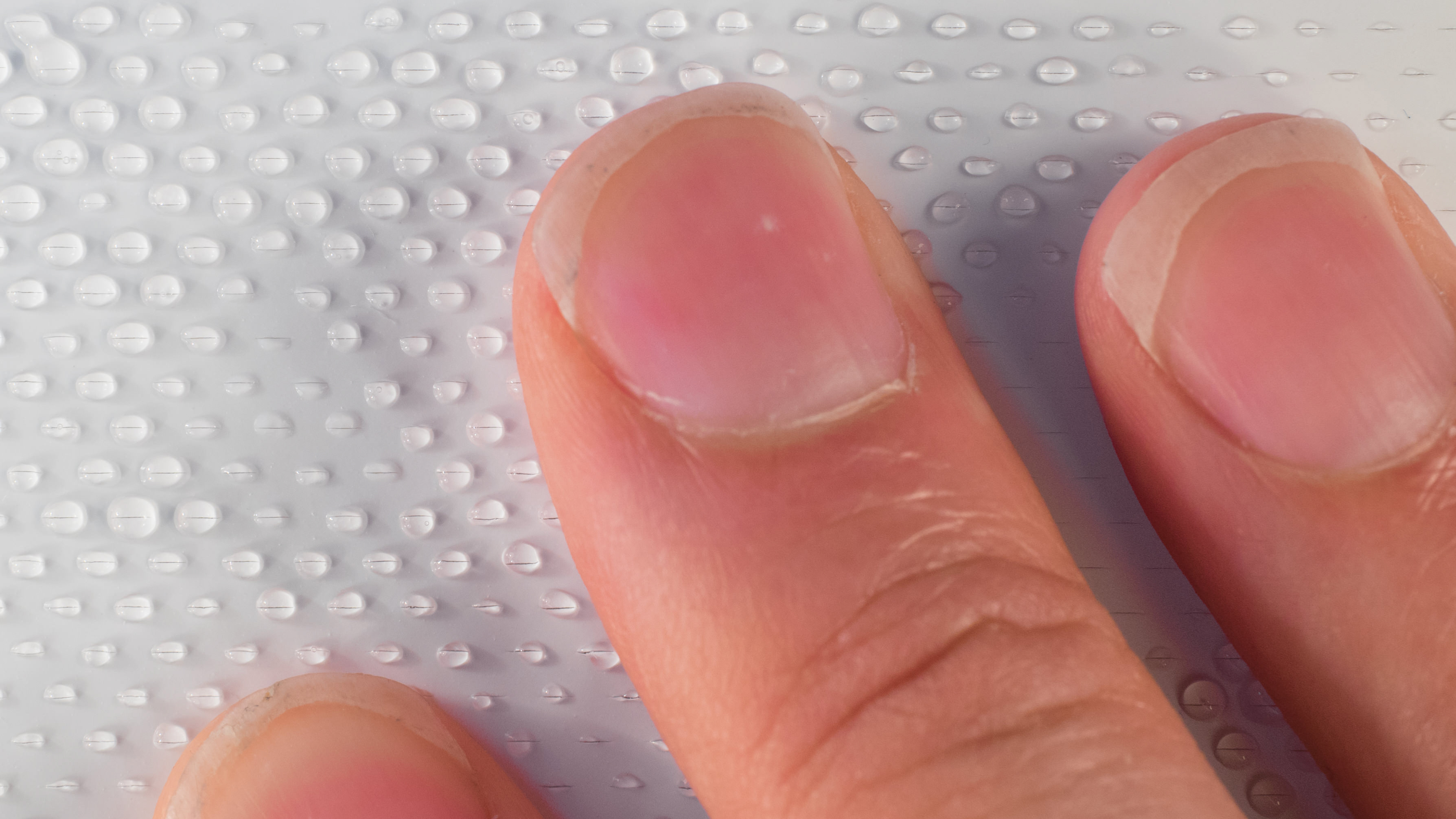This self-cleaning textile could be the future of space-wear
Reducing bacteria levels by more than 90 percent

Yesterday we learnt that future space missions could face an unexpected problem - microbes build up inside a spacecraft sealed for months on end.
But with a new day comes a new solution - a novel textile called Surfaceskins that is able to disinfect itself, killing more than 90 percent of the bacteria on the surface.
The material is the creation of a team from the University of Leeds, who've been working on it for about seven years. It works by dispensing a small amount of alcohol gel when it's pushed, disinfecting the surface.
It's built up of three separate non-woven textiles, the researchers say, creating tiny valves that pump out the alcohol gel. It wouldn't be suitable for every surface, as it needs replacing every seven days, but it could be useful for areas that are frequently touched.
Hospitals
The team, who have formed a spin-off company to commercialise the technology, imagines that it could prove particularly useful in hospitals back on Earth.
Doors in hospitals are touched by many people over the course of a day, and only one person with dirty hands can spread contamination to everyone else. But by covering a portion of the door with this material, it could be kept sterile. The team has also invented a door handle using the same technology.
In tests, the team found that Surfaceskins was more effective than a standard door plate, over a period of seven days, in reducing levels of three bacteria that cause common infections.
Sign up for breaking news, reviews, opinion, top tech deals, and more.
Mark Wilcox, a Professor of Medical Microbiology at the University who led the testing, said: "Our results suggest that Surfaceskins door pads can help to reduce the contamination of doors by microbes."
"They offer a new way to reduce the risk of the spread of bacteria and viruses in hospital environments and other settings where frequent contact with doors could undermine hand hygiene."
The details of the tests were published in the Journal of Hospital Infection.
